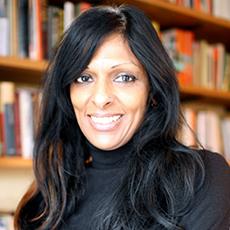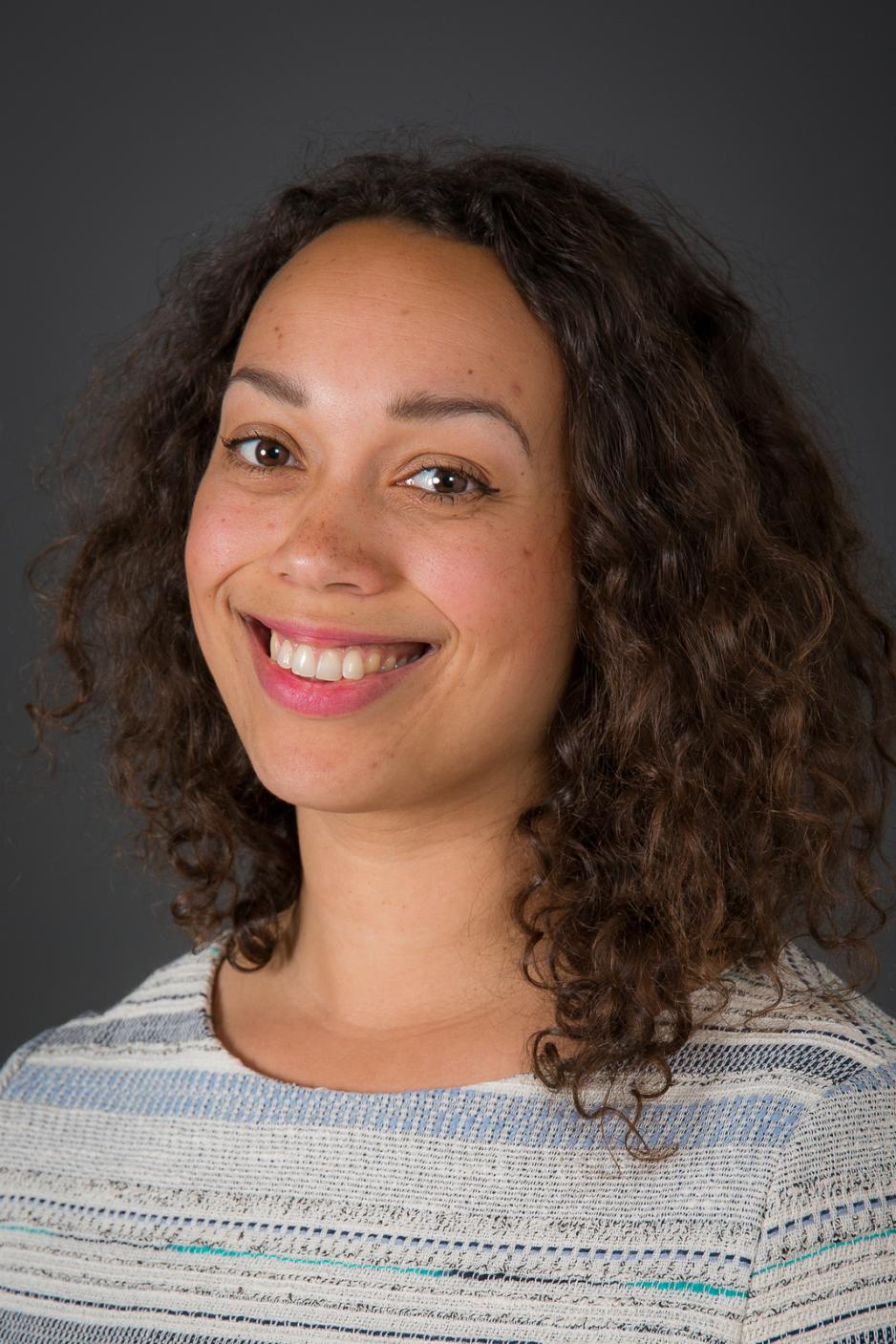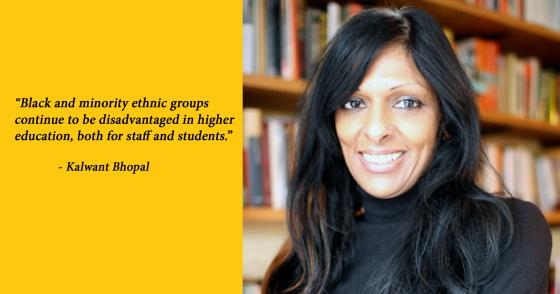Kalwant Bhopal: It pays to be white on campus
Racism has become more visible in the UK after Brexit, and is seen in academia as well. This is according to diversity researcher Kalwant Bhopal, who is coming to Norway in November for a conference on diversity.
How inclusive is Norwegian academia, and has Norway made more progress than the UK? In 2016, a research report commissioned by the KIF Committee showed that it is not an advantage to be a foreigner in Norwegian academia. People with a minority background are less likely to earn a Ph.D. and get hired in an academic position, even though they say more often than the majority population that this is what they want.
In November, the British professor and diversity expert Kalwant Bhopal will come to Oslo in connection with the conference “Diversity in the academy – from concepts to measures”. She is a professor of education and social justice at the University of Birmingham and a guest lecturer at Harvard University. Bhopal has focused her research on racism and ethnic minorities in education and academia, as well as studied discrimination against the Romani people and other itinerant ethnic minorities.
Face many barriers
“I think we need a target system to get enough black and minority ethnic professors,” says Kalwant Bhopal.

She has extensive experience as a researcher of ethnic minorities in the education sector, where she has served as a member of the Equality and Diversity Committee at the University of Birmingham and written a number of books on racism, identity and inclusion. In September, the professor published an article on measures that universities and university colleges can implement to increase diversity.
The conference, which is being organized by the KIF Committee, the Young Academy of Norway and the Institute for Social Research, will challenge researchers and academics in management positions to reflect on what they mean by the term “diversity”, and especially “ethnic diversity”. Based on this, they will discuss concrete measures that can increase diversity.
Bhopal recommends a system that would give more financial support to educational institutions with a high degree of diversity.
“We also need a similar system for students who attend elite universities. Evening out the proportion of various ethnic groups and tying the institutions’ work to the Race Equality Charter will make a significant difference in how universities think about race,” says Bhopal.
“What are the main barriers facing ethnic minorities in the UK with regard to academic careers?”
“The biggest barrier is racism. Not having access to networks or mentoring and not having the support needed to progress in higher education. Black and minority ethnic (BME) groups continue to be disadvantaged in higher education, both for staff and students,” says Bhopal, and then refers to her own research:
“Black students are less likely than white students to leave university with a first or upper second-class degree [equivalent to undergraduate level], and they are less likely to go to an elite university. BME staff are less likely than white groups to be in senior decision-making roles such as professor.”
Brexit, Trump and anti-immigration
Last year, Bhopal said to the US website RI Future that Brexit had legitimized much of the established racism in the UK. Within a week after the results were announced, the number of racially motivated crimes increased. Bhopal believes that Brexit, just like President Donald Trump in the US, promised to end immigration and multiculturalism. This inequality manifests itself in all areas of society.
“Why does inequality exist in British academia? And what are the consequences?”
“Inequality exists because of racism, exclusion and marginalization of BME groups and the continued perpetuation of white privilege. I think the consequence of not achieving race equality is that we will continue to perpetuate whiteness and white privilege so that future generations will see higher education reserved for privileged whites only.”
Still white at the top

Norway does not have Trump or Brexit, but is the situation here any better? Several diversity researchers in Norway will take part in the conference in November, including Arnfinn Midtbøen and Julia Orupabo of the Institute for Social Research, and Marta Bivand Erdal of the Peace Research Institute Oslo (PRIO). According to researcher and author Julia Orupabo, Norway is a success story compared with other countries:
“Immigrants and their children have high ambitions and attend higher education institutions. The problem is that academia, so far, has not managed to retain them. We see that they are not well represented, especially in senior-level and permanent positions. The reason might be that academia is not attractive enough, or it might have to do with barriers. It’s an important issue that we know too little about,” she says.
Orupabo is currently working on a project that studies recruitment to senior-level position in various subject areas at Norwegian universities. She has noticed that many people think about equality and gender, but not about diversity related to the immigrant population.
“When I ask about ethnic diversity, it gets rather quiet. Then they often point to international researchers from Germany or England. I think this is changing though. Many educational institutions include ethnic diversity in their action plans for equality, and the KIF Committee also has an expanded mandate that encompasses ethnic equality.”
“The problems vary”
Like Bhopal, Orupabo believes that discrimination and a lack of networks, as well as language barriers, are obstacles for many minority groups in academia. These barriers may be the same as those found in other parts of the labour market, but there is not enough research to draw any conclusions.
“It also depends on which ethnic minorities we are talking about. Refugees with an academic background, international researchers and children of immigrants face different challenges. I also think that different parts of academia have different challenges,” says the researcher, and continues:
“For example, my own research shows that immigrants and their children feel that their ethnic background is a resource in some subjects, while in other subjects they see it as a limitation.”
Lags behind in research
Arnfinn H. Midtbøen, a member of the Young Academy of Norway and a sociologist at the Institute for Social Research, points out that the UK has made more progress on research on ethnic minorities in the educational system and in the education sector. For example, there is still no empirical research in Norway on the significance of ethnicity for recruitment to academic positions.

“In the Norwegian debate, we combine many different phenomena when we discuss diversity in academia. The debates on internationalization and decolonization are examples of this. The topics are very different, but both touch on the issue of diversity,” says Midtbøen.
The researcher says that statistics on the growing proportion of immigrants and children of immigrants in Norwegian academia obscures the fact that this increase is driven mainly by international researchers from Europe and the US. We still know very little about immigrants from other parts of the world.
“Although the British context is quite unlike the Norwegian in many ways, it will be relevant for the management at Norwegian educational institutions to hear about Bhopal’s research. Hopefully her presentation will inspire managers to think about measures and encourage researchers to explore the topic further.”
Different barriers for different groups
Julia Orupabo will comment on Bhopal’s presentation at the conference on 8 November. It remains to be seen how different the two countries are and whether Bhopal’s research is relevant for the Norwegian context. Bhopal gives us a glimpse into her upcoming presentation:
“I will be discussing how BME groups continue to be marginalized at universities and how white privilege works to disadvantage them, particularly how the white space of the university is simply that – a white space reserved for whites only.”
Translated by Connie Stultz.
The Young Academy of Norway, the Committee for Gender Balance and Diversity in Research (the KIF Committee) and the Institute for Social Research are inviting researchers, managers and practitioners in academia to discuss the issue of ethnic diversity, 8 November in Oslo!
Read more about the conference here, and register before 31 October here.



